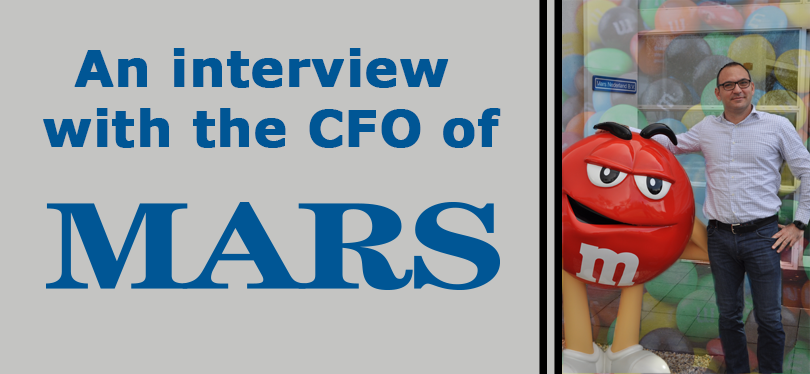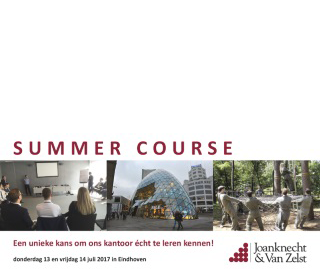Can you tell us something about yourself?
As you can see from my name, Francesco, I am Italian, born and raised in Italy. I lived most of my life in Milan, a city mostly known for fashion and football, and I am an Inter fan. However, I am originally from the south, and in Italy there is a bigger difference between the north and the south than in the Netherlands. In terms of education, I studied economics which in Italy is for 5 years. During that journey, I spent a year abroad in the UK, with the Erasmus program. It was the most important experience during my time at university, because it was the first time I could live abroad and study a different language, getting to know English a little better. When I finished studying I did a year in the army, which was mandatory at the time. Luckily it is not anymore for the new generation. After that I started working.
What does a normal workweek look like for you?
A normal week does not exist, because there is no normal week. A normal day is 80% about talking to people, especially as a CFO. CFOs have very big teams, like the big financial operations team and the business partnerships team. A normal day can be described as coming to the office and you plan to do 5 things. Normally you start doing those 5 things at 5 PM. Why, you may ask? Because from 9 AM to 5 PM everything else happens. At the end of the day you need to deliver results. As a CFO you are only successful, if your teams are successful. So, the most important task is making sure that all the teams deliver successfully. So you have to work very closely with your teams, your peers and the management team. Also I need to work very closely with the Marketing and Sales teams, considering the operations Mars is involved in. There is a talking, aligning, motivating and decision making process happening with different stakeholders.
“Your confidence starts by accepting that one is never perfect”
Other than your study, what would you say was the biggest factor that contributed to your success, especially your initial success?
Actually, study matters the most at the beginning of your career. In the beginning, it is needed to develop the skills for your functions. Then when you become a manager, you need to show more management skills. The more you grow, the more it becomes about leadership. The reason some people do not make it beyond this point is because of how fast and how well they develop as a leader. When I look at my career progression, probably what accelerated my career, was the personal development. Every moment you need to realize you have to work on yourself and who you are as a person. Personal development starts with self-awareness. Everyone believes they are self-aware. Whenever you ask a person if they are self-aware and they respond yes, you know it is not the case. You can never be fully self-aware at all times. That is why personal development is a continuous journey. If you ever studied philosophy, you would know the expression ‘know thyself’, which became the most important thing in a successful career. Knowing thyself means also being confident about who you are. Your confidence starts by accepting that one is never perfect, and understanding your strengths and being confident on the usage of your strengths. You can never be someone else! Everyone grows into leadership in their own unique way, and this is possible by being confident about your strengths.
What would you say are the main work and cultural differences between Italy and the Netherlands?
I will be very honest! Every culture has positive and negative aspects. Italy is a very emotional culture, so they are very expressive through emotions. This means that in their immediate reactions, people tend to be quite defensive, and they personalize a lot. When it comes to the Netherlands, one thing I found very common is that here everybody resonates with personal responsibility and accountability. The positive thing is that this makes people incredibly professional and they take everything in a professional manner. You know they will do their best because you often run into sayings like: ‘I am responsible!’ and ‘You can trust me!’ In the Netherlands, people do not personalize, because they distinguish very well between professional and private life. This works very well for me. The other side of personal responsibility is working too much in silence on their own. The working culture here is not hierarchical at all, which is a big difference because in Italy it is much more hierarchical. The good part of a flat hierarchy is people feeling empowered. On the other side, this makes collaboration and interaction not that easy when it comes to delegating tasks to the people working for you. In Italy it tends to be a bit too hierarchical, a little bit over-controlling. Dutch people are very direct. It is interesting because they are blunt and get to the point much faster. On the other side, in Italy people are much more directive, because you hear people saying all the time ‘You have to do this!’ In the Netherlands it is quite the opposite since you rarely hear people saying that. It is more common to leave it in other people’s hands. So, people in the Netherlands are direct, but not directive, because people hate being told what to do. If you try to tell them what to, they will not do it.
“The more you grow and develop, make sure you know what you want and own it.”
Everyone knows the term CFO, and most people know what it stands for. What are some specific tasks you have to do as a CFO?
It starts with governance. Governance, you realize, is the foundation of any successful business. If you look at the outside world, you realize there are increasingly governance issues. You need to make sure when you start as a CFO that the right processes are in place, internal control is in place and no fraud is being committed. We do not want to talk or hear about these topics, because we trust each other, but they do happen. According to the statistics, 50% of the workforce is as honest as the controlled environment allows. If there is no speeding limit when they are driving on a highway, people will drive as fast as they want. So, we have to make sure that people do not act in a fraudulent way and that they stick to the rules. So, it starts with making sure governance is secure and well-functioning. The second part is being a business partner for the management team. As a CFO, you have to do different tasks for the General Manager, where one is defining the strategy of the company. Strategy means defining the choices you must make every day and defining specific goals so that the company continues in the best way possible. It is crucial that in those choices, you make people want to follow you. Within this framework, it is important that, as a CFO, one understands that one is responsible for delivering results. The job is about preparing for the long term and delivering in the short term. The most important thing, especially when you start, is to earn trust. As a CFO, you also play a big role in the forecasting process, and providing the right steer to the management team, in terms of direction, actions, risks and opportunities. You really play a big role in the direction of the organization. The last thing is about supporting the teams. It is about hearing the different proposals, understanding the next steps of the team, and understanding that in the FMCG (Fast Moving Consumer Goods) industry there is a high promotional pressure. That is also where the biggest spending goes. As a CFO you have to make sure you manage revenue in the best way and optimize the trade spending, in order to keep the highest efficiency and the best resource allocation.
What kind of advice would you give to the CFO-aspiring students?
It is not just about functional development, but more about personal development. People realize over time that what brings you to a certain level, will not take you to the next level. You have to successfully develop yourself in a healthy way, because only the functional skills will not be enough. Get to know yourself, because self-awareness is very important. It is very important to use feedback from others. We tend to be scared, but we shouldn’t be. The last advice is to own your career! Do not let others steer you off course. The more you grow and develop, make sure you know what you want and own it. Your career is yours, not your boss’s! I wish someone had told me this when I was your age.

















